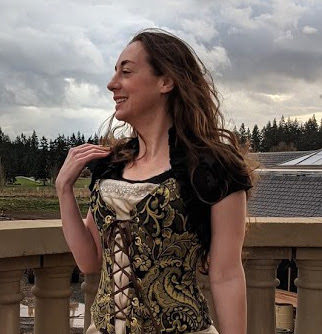Deirdra: When did you first know you wanted to be an author? Afton : When I was 12 years old my older sister, Wendi and I would spend time every night before bed writing in our journals. I didn’t have a lot to say then but I discovered the satisfaction of writing. As I continued to write through the …
Saturday, April 30, 2011
Friday, April 29, 2011
Y - interview with author Michael Young
Michael is a graduate of Brigham Young University with a degree in German Teaching and a minor in Music. He puts his German to good use by working to build online German courses for High School students. Though he grew up traveling the world with his military father, he now lives in Utah with his w…
Thursday, April 28, 2011
X - Xanthous, Xanadu, and Other Exciting Names For Colors (Colour)
Xanthous, Xanadu, and Other Exciting Names For Colors (Colour): Black: anthracite, black pearl, blue-black, coal, ebony, inky, jet, licorice, midnight, obsidian onyx, pitch, raven, shadow, soot/sooty, tar Blue: aqua, aquamarine, azure, baby, blue-gray, blue-green, cadet, Caribbean, cerulean, cobalt, …
Wednesday, April 27, 2011
W -- Interview with Literary Agent Cherry Weiner
Deirdra: What made you decide a career as a literary agent? Cherry: I didn't decide. It was decided for me. I had been working for a literary agent and he fired me. Some of his big name authors thought enough of me to keep hounding me to open my own agency. I wouldn't because I felt I…
W- Interview with Author Amanda Washington
Deirdra: What made you decide to become an author? Amanda: I never really decided to become an author. I’m an avid reader. No, that’s an understatement. I’m a devourer of books. But in January of 2009 I started having these really insane apocalyptic dreams. I told my sister-in-law about them and she…
Tuesday, April 26, 2011
V - Interview with Author G.G. Vandagriff
I realize that I am one of those rare people in the world who gets to live a life full of passion, suspense, angst, fulfillment, humor, and mystery. I am a writer. Everyday when I sit down to my computer, I enter into world of my own making. I am in the head of a panoply of characters ranging from …
Saturday, April 23, 2011
T- Interview with Author Rebecca Talley
Deirdra: When did you first know you wanted to be an author? Rebecca: When I was a kid I made a “Velt Book” out of felt. In sixth grade, I started a novel similar to the Encyclopedia Brown series, I even illustrated it. Deirdra: What is your writing and educational background? Rebecca: I graduated fro…
Subscribe to:
Posts (Atom)
Total Pageviews
Pages
- Home
- Art
- The Watchers Books
- Time Management For Creative People Workbook
- Book Trailers
- About Deirdra
- Clothing Designs and Paper Dolls
- Photography
- The Watchers Screenplay
- Crafts and Remodeling
- Book Covers
- Animal Family
- Free Stuff
- Watchers Worldwide
- Q & A
- Contact
- Recipes & Food Art
- Family Safety Advocacy
- My Garden
- Endorsements
- The Sanctuary
- News & Events
- Little Church on the Prairie
- Religious Women's Studies
- A Storybook World Podcast
|
Add this to your site |
Highlight the code below to get A Storybook World button










